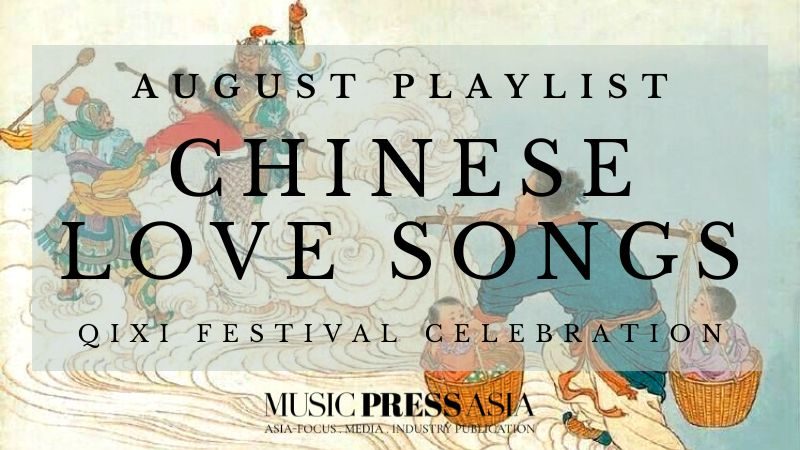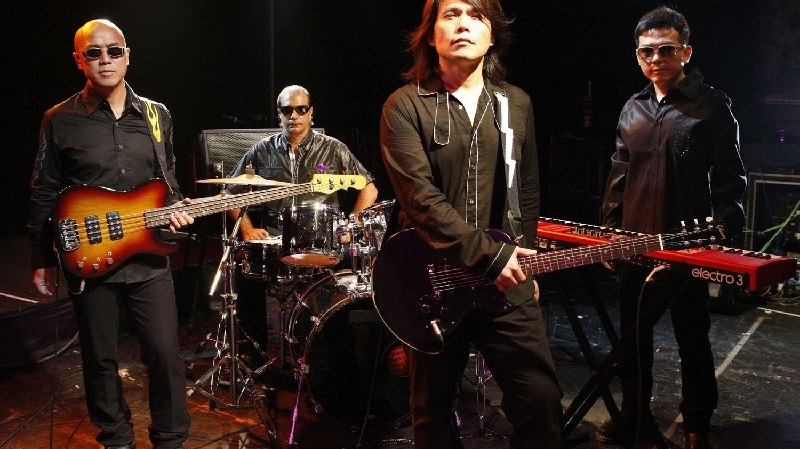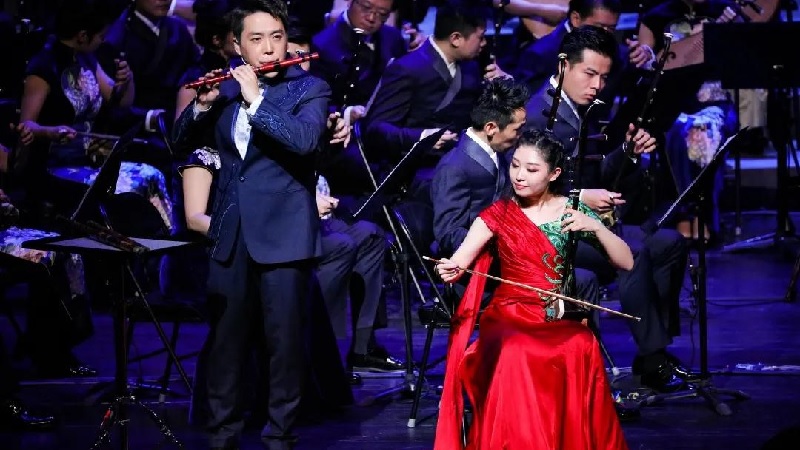Qixi Festival: Chinese Love Songs Of All Times
Chinese Valentine’s Festival Playlist to celebrate Qixi features the China National Traditional Orchestra, Wu Bai & China Blue, Jay Chou and Teresa Teng.
Chinese Valentine’s Festival Playlist to celebrate Qixi features the China National Traditional Orchestra, Wu Bai & China Blue, Jay Chou and Teresa Teng.

This year, the festival falls on the 4 August, which is on the 7th day of the 7th Chinese lunar month. With around 1,5 billion Chinese on the planet Earth, it can be quite a mushy day. Lovers and sweethearts benefit today no matter how creative their loved ones get. But chocolates and flowers would do.
The Qixi Festival (Double Seventh Festival) is a passionate celebration of love. This Chinese traditional festival is known to have existed for over 2,000 years. Based on a romantic legend about a goddess and an ox herd, it is peculiarly and popularly known as the Chinese Valentine’s Day.
Traditionally, the legend of the lovers is a splendid story to tell. Its bizarre prelude describes the story of an ox that wanted to play matchmaking for his owner, Niulang. The ox speaks of a goddess Zhinü and hints to its owner that if he would steal her garment, he would soon have a wife. No matter how shrewd an ox may sound, it is a story that endorses the value of determination to find love.
Well, love is in many ways a form of emotional determination, isn’t it?
The festival has been celebrated since the Han Dynasty (206 BC – 220 AD). And as recently as May 2015, the Double Seventh Festival was added to the National Intangible Cultural Heritage list by the State Council of China.
Although many of the traditional customs are disappearing and are no longer observed, customs of the past involved speedily threading a needle under the moonlight and carving exotic flowers, animals and unusual birds on a melon skin.
In celebration of this ancient Asian story, Music Press Asia presents some of Chinese’s most romantic songs featuring some of Asia’s most prominent artists of this era.
“The Moon Represents My Heart”, 月亮代表我的心
Teresa Teng (Teng Li Chun)

Teng enjoyed the repertoire of one of the biggest singers in the world in her heyday in the 1970s and 1980s. Her most popular love song The Moon Represents My Heart was released in 1977. Over the following decade, her songs continue to revolutionise Chinese popular culture.
A Taiwanese singer, actress and philanthropist, Teresa is Asia’s cultural icon. Her contributions to Mandopop are perhaps only equivalently described as the fame of Michael Jackson and the sultry aura of Audrey Hepburn combine. She laid the foundation of modern Chinese popular music of the 90s by merging western and eastern styles to create revolutionary songs that will forever be in your Spotify playlist.
In Taiwan, she was famous for entertaining the armed forces and singing patriotic songs that appealed to the natives of the island. She was nicknamed “the patriotic entertainer” and “the soldiers’ sweetheart. She recorded more than 1,500 songs throughout her career.
According to available IFPI statistics, Teng has sold over 48 million albums as of 2010 (excluding the sales data in mainland China). In 1986, Time magazine named her one of the seven greatest female singers in the world.
Listen to Teresa Teng’s “The Moon Represent My Heart”
“Love You Ten Thousand Years” [愛你一萬年]
Wu Bai & China Blue

Dubbed “The King of Live Music”, Wu is considered to be one of the biggest pop music stars in East and Southeast Asia. This Taiwanese rock singer, songwriter and actor formed the band Wu Bai & China Blue with Dean Zavolta (drums), Yu Ta-hao (keyboards) and Chu Chien-hui (bass guitar), while Wu himself is the lead guitarist and vocalist of the band.
One of the biggest rock stars in the Mandarin language music markets, he has held numerous sold-out concerts in Taiwan, Singapore, Malaysia and Hong Kong. Their hit single “Norwegian Forest” sold 600,000 copies and was honored by the China Times and the United Evening News as one of the year’s Top 10 Albums.
Prior to Wu Bai & China Blue’s achieving widespread popularity in Taiwan in the mid-1990s, guitar-oriented rock music was unusual in the country’s domestic popular music scene. Live concerts were similarly rare but the group’s frequent touring and live album releases set a new standard for live performing in Taiwan. The band’s distinctive blend of poetical lyrics with rock tunes has won them fans not only in Taiwan but throughout East and Southeast Asia and they have had successful regional concert tours in many cities.
In 1999, Wu won Album of the Year with his album, Lonely Tree, Lonely Bird at the 10th edition of the Golden Melody Awards. At the same event in 2017, he also won in the same category for his album Ding Zi Hua, 釘子花 (2016).
Listen to Wu Bai & China Blue’s “Love You Ten Thousand Years”
“Love Confession” [告白氣球]
Jay Chou

Not only is Jay is King of Mandopop today, he is also the King of love. Let him then sing of love for Paris and how a romantic meeting should end in this song titled Love Confession.
Having sold over 30 million records to date, Jay Chou is perhaps Taiwan’s greatest Mandopop artist. His debut album Jay, released in 2000 under the record company Alfa Music, was the beginning of many great things. Fast forward to 2019, his world tours saw him perform in cities around the world to more than 10 million spectators.
Chou’s compositions are loosely categorized as pop music. While many of his works fall into contemporary R&B, rap, and rock genres, the term “Chou Style” has been popularized to describe his trademark cross-cultural music and insistence on singing with slurred enunciation.
Chou leads a new trend of music that combines western musical elements and Chinese literature terms. Because of this unique combination, he makes a distinction between himself and other musicians by leading a “Zhongguo Feng” in Asian music history. The success of his Western-Chinese musical combination is built on his marketing strategies and the musical elements involved in his works.
Listen to Jay Chou’s “Love Confession”
“The Love Song of Kangding”
China National Traditional Orchestra

The Love Song of Kangding
Composer: Jiang Dingxian
Arrangement: Hu Tingjiang
Singer: Wei Jiani
Also called High upon the Mountain Side, The Love Song of Kangding is the most iconic folk song from the original Xikang region.
The China National Traditional Orchestra was founded in 1960 and is the world’s largest performance ensemble for Chinese traditional music, offering the most consummate repertoire. It combines an orchestra of traditional Chinese musical instruments with an accompanying folk choir and features many accomplished musicians.
The orchestra is dedicated to promoting China’s folk music heritage of the past several thousand years around the world. On this channel, you can appreciate classic folk music pieces, as well as new popular arrangements, and even study traditional music online with musicians.
Listen to CNTO’s “The Love Song of Kangding”.
To learn more about the Qixi festival and legendary love story, click here to watch here on China Highlights YouTube channel.













